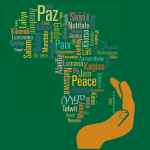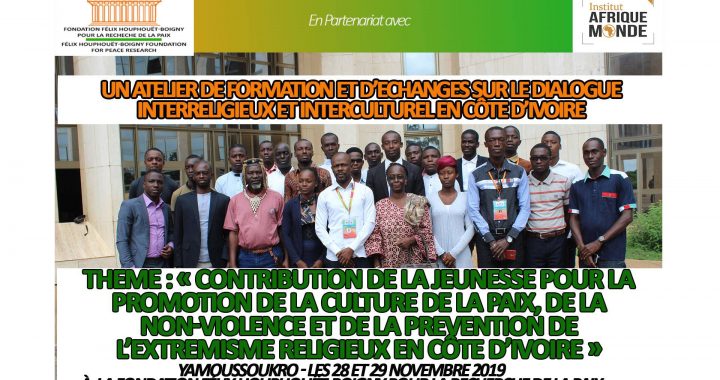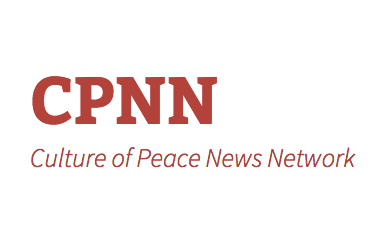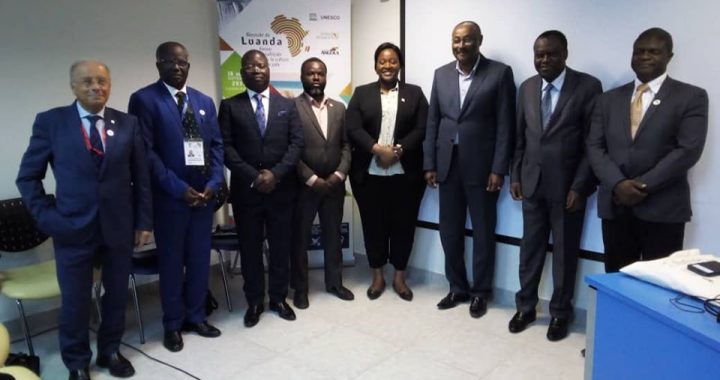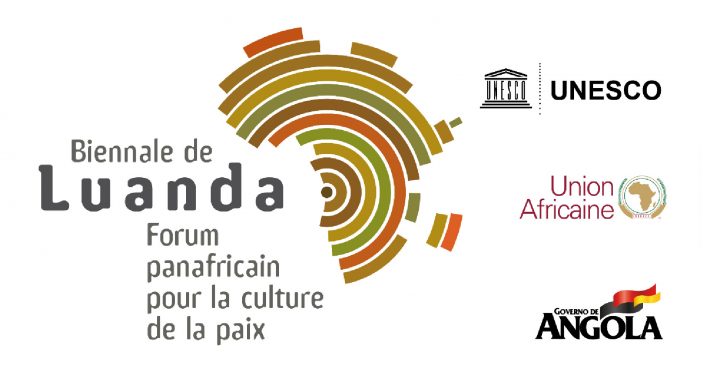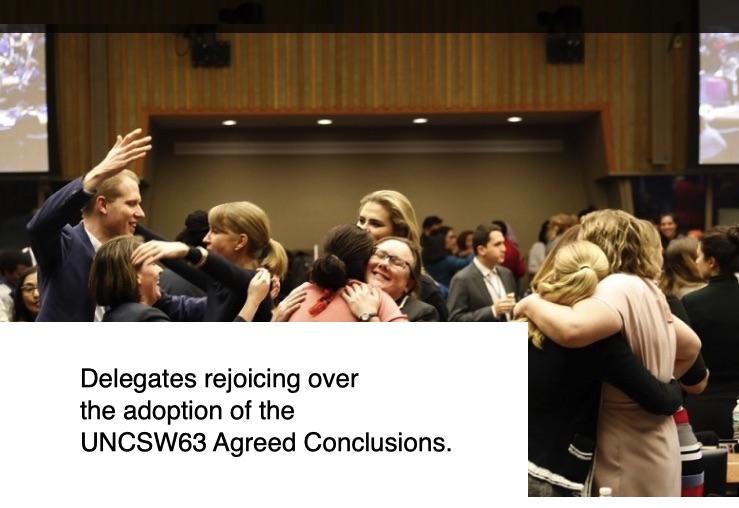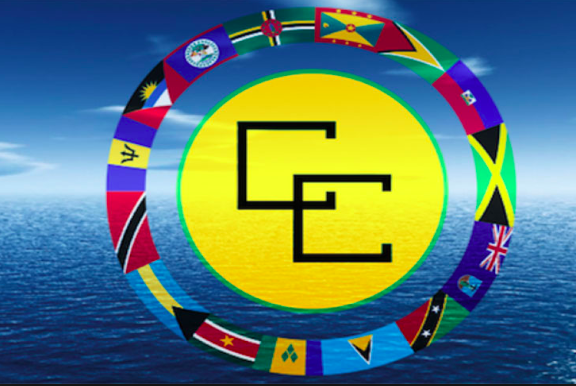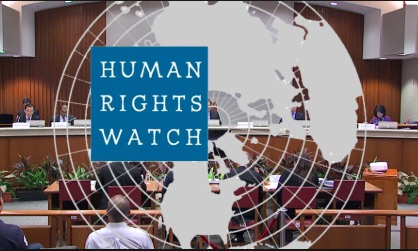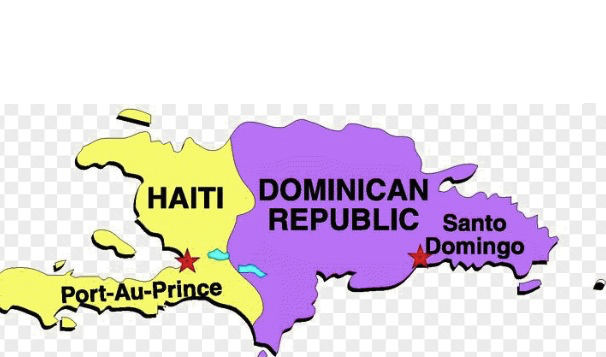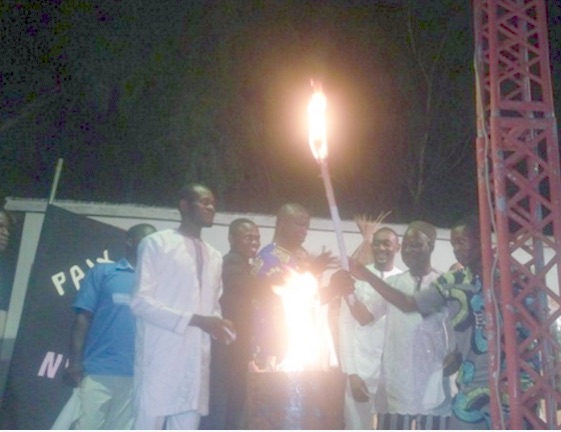Category Archives: Newsletters
CPNN (Culture of Peace News Network) bulletin of November 1, 2019
PRIZES FOR PEACE
This year, the Nobel Prize for Peace was awarded to Ethiopian Prime Minister Abiy Ahmed Ali. Readers of CPNN may be already familiar with his contribution to ending the conflict between Ethiopia and Eritrea, a conflict that had been going on for decades despite a peace deal that was signed some 18 years ago. In announcing the award the Norwegian Nobel Committee stated that they hope that the Prize “will strengthen Prime Minister Abiy in his important work for peace and reconciliation.”
CPNN (Culture of Peace News Network) bulletin of October 1, 2019
INTERNATIONAL DAY OF PEACE
In our survey this year we found 655 actions for the International Day of Peace that took place throughout the world. It is more or less the same number as last year, although we counted them in a different way this year.
The theme this year, decided by the United Nations, was climate action for peace. In this way the theme of peace was linked to the enormous mobilizations against climate change that took place this month throughout the world.
Report of the 5th Network Meeting held on September 21, 2019 in conjunction with the Luanda 2019 Biennale in Angola
REPORT OF THE MEETING OF THE MEMBERS OF THE NETWORK OF FOUNDATIONS AND RESEARCH INSTITUTIONS FOR THE PROMOTION OF A CULTURE OF PEACE IN AFRICA
On Saturday, September 21, 2019, the meeting of the members of the Network of Foundations and Research Institutions for the Promotion of a Culture of Peace in Africa was held at the Agostino Neto Memorial in Luanda, Angola, from 9 a.m. to 1 p.m.
The following organizations participated in this meeting:
- Eduardo Dos Santos Foundation, Angola
- Antonio Agostino Neto Foundation, Angola
- The UNESCO National Commission of Angola
- The Félix Houphouët-Boigny Peace Foundation, Côte d’Ivoire
- UNESCO Chair for the Culture of Peace, Côte d’Ivoire
- The UNESCO Transdisciplinary Chair in Human Development and Culture of Peace, Italy
- The Pan-African Centre for Gender, Peace and Development, Femmes Africa Solidarité (FAS), Senegal
- UNESCO
Sorry, Professor Charles Binam Bikoi of the International Research and Documentation Centre on African Traditions and Languages (CERDOTOLA) sent his comments and suggestions in writing.
The agenda of the meeting was as follows:
- Welcome address by Mr. Joao de Deus, President of the Network and Director of the Eduardo Dos Santos Foundation
- Review of the Network’s activities and revision of the statutes and internal regulations
- The renewal of the members of the Executive Board
- The presentation of the Laboratory/School of Transdisciplinary Knowledge of Cultures for Sustainable Development and Peace, by Professor Paolo Orefice
- Development and adoption of the action plan
- Closing remarks by the President of the Network
In his opening address, the current President of the Network, Mr. Joao de Deus Pereira, welcomed all participants. He maintained the meeting despite last-minute defections by some Network members who, for various reasons, were unable to travel to Luanda. The major problems in the life of our Network require decisions that can no longer be postponed.
After having the agenda adopted, Mr. Joao de Deus opened the proceedings of the Network’s ordinary meeting.
The floor was given to Mr. Jean-Noël Loucou, Permanent Secretary of the Network for the presentation of the Network’s Activity Report for the calendar year from September 2017 to September 2018. This report contains three sections devoted respectively to the implementation of the recommendations of the last General Assembly, and to the functioning and activities of the Network. On the first point, due diligence was carried out on the Network’s legal recognition procedure, the application for affiliation to UNESCO and the preparation of a budget. On the second point relating to the functioning, the Network held the annual meetings of its General Assembly. It received eight new applications for membership, one of which was confirmed. The Network’s website was completely renovated in 2017 and is managed by a community manager. Finally, the third part of the report referred to scientific and cultural activities. The Network thus organized three scientific symposia and participated, through the President and the Permanent Secretary, in three scientific meetings organized by UNESCO at its Paris headquarters.
After a brief discussion, the report was approved by all participants.
The Assembly then decided on the amendment of the Network’s statutes and rules of procedure. The Articles of Association have been amended to include two auditors and two treasurers. Articles 2, 5, 17 and 18 have been stylistically corrected. A new article (Article 21) has been added on Network projects that receive funding. It reads as follows. “Article 21: These projects shall pay the Network a percentage of between 5 and 10 per cent of the amounts. “The internal regulations have been amended to take into account these amendments to the Articles of Association.
On the renewal of the members of the Executive Bureau of the Network, the participants approved the following list which includes 20 members:
Presidency: Eduardo Dos Santos Foundation (Angola)
Permanent Secretariat: Félix Houphouët-Boigny Foundation for Peace Research (Côte d’Ivoire).
Deputy Secretariat: Council for the Development of Social Science Research (CODESRIA), Senegal.
Members of the Executive Board
North Africa: Cairo Regional Centre for Conflict Resolution and Peacekeeping Training (Egypt).
East Africa: University for Peace-Africa Programme (Ethiopia); Centre for Peace and Development Studies (South Sudan).
West Africa: UNESCO Chair for the Culture of Peace (Côte d’Ivoire); Society for Peace Studies (Nigeria); Women Africa Solidarity (FAS), Senegal.
Central Africa: International Research and Documentation Centre on African Traditions and Languages (CERDOTOLA), Cameroon; Agostino Neto Foundation (Angola); Omar Bongo Ondimba Foundation for Peace, Science and Environment (Gabon); UNESCO Chair for the Culture of Peace (Democratic Republic of Congo).
Southern Africa: UNESCO “Oliver Tambo” Chair for Human Rights (South Africa); Observatory of Cultural Policies in Africa (OCPA), Mozambique.
Diaspora: Whitaker Initiative for Peace and Development (United States).
Regional institutions: Institute for Security Studies (ISS), Ethiopia.
Non-Regional: Culture of Peace Foundation (Spain); Centre d’Etude et de Prospective Stratégique (CEPS), France; UNESCO Transdisciplinary Chair in Human Development and Culture of Peace (Italy).
The headquarters of the Network is located in Yamoussoukro (Côte d’Ivoire), at the Félix Houphouët-Boigny Foundation for Peace Research.
The fourth item on the agenda was devoted to the presentation by Professor Paolo Orefice of the Laboratory/School of Transdisciplinary Knowledge of Cultures for Sustainable Development and Peace, which is part of the 2017/2021 project of the UNESCO Chair at the University of Florence (Italy). It is in line with the sustainable development objectives of Agenda 2030.
Finally, the Assembly elaborated and adopted an action plan that defines the actions to be carried out by the Network in the short and medium term.
In his closing address, the President of the Network, Mr. Joao de Deus, thanked the participants for their presence and active participation in the life of the Network. He called for the rapid implementation of the action plan and greater visibility of foundations and research institutions and their activities among citizens and national and international institutions.
Done at Luanda, September 21, 2019
The Permanent Secretary of the Network
Jean-Noël LOUCOU
CPNN (Culture of Peace News Network) bulletin of September 1, 2019
HOPE FOR PEACE IN THE HOLY LAND
If we look at the news and consider only the short-term, peace seems very distant between Israelis and Palestinians. But if we take a long-term historical view, there is reason to hope.
CPNN (Culture of Peace News Network) bulletin of August 1, 2019
CULTURE OF PEACE CONFERENCES
This summer and fall there are international conferences for the culture of peace sponsored by organizations throughout the world.
CPNN (Culture of Peace News Network) bulletin of July 1, 2019
MASS PROTESTS AROUND THE WORLD
Around the world people are taking to the streets in nonviolent demonstrations to demand justice and democracy.
In some cases (Hong Kong, Russia and Algeria), the mass demonstrations have already led to some changes, while those in Kazakhstan, the Czech Republic, Sudan and Brazil have not yet achieved the desired results.
CPNN (Culture of Peace News Network) bulletin of June 1, 2019
LEADERSHIP FOR PEACE
In a time of bad news and confusion, we seek those who can lead us towards a future of hope and stability. Here are some good examples of leadership that we have cited recently in CPNN.
CPNN (Culture of Peace News Network) Bulletin of May 1, 2019
PRESS FREEDOM UNDER ATTACK
Freedom of the press is under attack around the world, with the biggest deterioration in North and South America. And the most spectacular and dangerous example is the arrest of Julian Assange of Wikileaks and the threat that he he may be extradited and tried by a kangaroo court in the United States.
According to Bruce Shapiro, the executive director of the Dart Center for Journalism and Trauma at Columbia University School of Journalism, the very essence of the press freedoms in the United States is under attack in the U.S. attempt to extradite and try Assange. He calls it an “attempt to criminalize investigative reporting.”
Not only freedom of the press, but also democracy, human rights and peace are under attack.
Daniel Ellsberg, himself the courageous whistle-blower of the Pentagon Papers that revealed the lies of the Vietnam War, puts it this way: “Without whistleblowers we would not have a democracy. And there have to be people to distribute work and publish it. Julian Assange has done that in a way in which other publishers have not been willing to. . . . it is now up to us to make sure that the First Amendment is preserved.”
United Nations experts, including the UN Special Rapporteur on extra-judicial executions, the UN independent expert on the right to privacy, and the UN Special Rapporteur on torture warned that the arrest and threatened extradition of Assange is a violation of his human rights, “including his freedom of expression, his right to a fair trial, and the prohibition of cruel, inhuman or degrading treatment or punishment.”
An example of how Wikileaks revelations promoted democracy comes from Kenya. Writing in Al Jazeera, Patrick Gathara describes how a report about government corruption was suppressed by that same government, but was obtained and revealed by Julian Assange and Wikileaks. Gathara states that “For once, Kenyans were afforded an unvarnished and detailed glimpse of the amount of national wealth that was being stolen by the very people tasked with protecting it.”
The list of Wikileaks evelations of government corruption is quite long, and it takes the journalist Alison Weir 8,000 words to describe them in the article we have reprinted in CPNN. Wikileads revealed “the U.S. government’s cover-up of torture, cruelty, the killing of civilians, spying on its own citizens and others. It exposed Democratic Party cheating and manipulation, the fraudulence of ‘Russiagate.’ It unmasked Israeli plans to keep Gaza on the brink of collapse, to use violence against Palestinian nonviolence, to make war upon civilians.” And the list could be even longer, if one includes examples like the corruption in Kenya mentioned above.
Although the United States is exerting pressure behind the scenes, the arrest was due to the actions of the governments of Ecuador and the UK.
For Noam Chomsky, it shows the global reach of the American empire: “why should the United States have the power to control what others are doing elsewhere in the world? I mean, it’s an outlandish situation. It goes on all the time.”
Fortunately, many people are taking positive steps to support Assange. In CPNN, we have carried several articles of support from Nobel Peace Laureate Mairead Maguire. On January 7 she nominated him for the Nobel Peace Prize. And after his arrest in April, she demanded the right to visit him in prison.
Mairead Maguire reminds us that the actions of Assange are an important contribution to peace: “By Julians courageous actions and others like him, we could see full well the atrocities of war. . . . I live in an era where people like Julian Assange, Edward Snowden, Chelsea Manning and anyone willing to open our eyes to the atrocities of war, is likely to be haunted like an animal by Governments, punished and silenced. . . .. This man is paying a high price to end war and for peace and nonviolence and we should all remember that.”
| FREE FLOW OF INFORMATION | SUSTAINABLE DEVELOPMENT
Photo essay: Climate Change Protests Sweep Europe |
WOMEN’S EQUALITY | EDUCATION FOR PEACE
National Campaign for Peace Education launched in Cameroon |
| DISARMAMENT AND SECURITY
Statement on Escalating Tensions in Venezuela Issued by the Caribbean Community |
HUMAN RIGHTS
South Africa Launches Plan to Combat Xenophobia and Racism |
TOLERANCE AND SOLIDARITY
Haiti – Dominican Republic : “For a culture of peace theme of the week of the diaspora |
DEMOCRATIC PARTICIPATION
Benin: The Youth Movement for the Preservation of Peace and Democracy |
